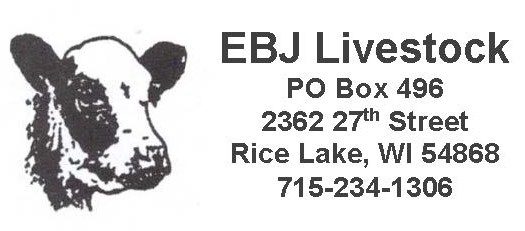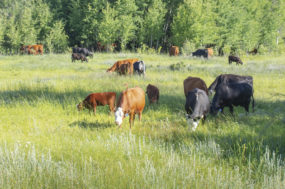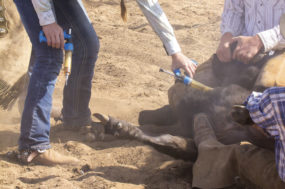The FLSA currently bars young workers from certain tasks, but the rules have traditionally allowed more flexibility with respect to the employment of young workers employed in agriculture. According to the DOL, the proposed rules would “increase parity between agricultural and nonagricultural child labor provisions.” According to the Secretary of Labor, “children employed in agriculture are some of the most vulnerable workers in America.”
The DOL is proposing rules prohibiting hired workers (under age 16) from working with certain animals, handling pesticides, working in timber operations, and working in or around manure pits and storage bins.
Further, the new rules would prohibit farm workers under the age of 16 from participating in the cultivation, harvesting and curing of tobacco and from using electronic devices while operating powerdriven equipment. The department is also proposing a new non-ag hazardous occupations (non-ag HO) order that would prevent children under the age of 18 from working in grain elevators, feed lots, stockyards, and livestock exchanges and auctions.
FLSA Rules – The Ag Exemption
The child labor provisions of the FLSA establish a minimum age of 16 years for employment of hired workers in nonagricultural and agricultural occupations. However, some exemptions do apply. The U.S. Secretary of Labor is authorized to provide regulations for 14 and 15-year olds allowing those young workers to work in “suitable occupations” (other than manufacturing or mining) as long as the work does not interfere with health, wellbeing, or schooling. 16 to 17- year old hired workers are allowed to work in the ag and non-ag sector without hour or time limitations except in “certain occupations found and declared by the Secretary to be particularly hazardous.”
These situations are addressed in the Non Ag and Ag Hazardous Occupations Orders. There is a limited parental exemption contained in §3(l) of the FLSA that applies to young people working in the non-ag and ag sectors permitting a parent or “person standing in the place of a parent” to employ his or her child in his or her custody under the age of 16 years in any occupation other than manufacturing, mining or designated hazardous occupation.
The FLSA defines agriculture as farming including cultivation and tilling of soil, dairying, production, cultivation, growing, and harvesting of agricultural commodities, raising of livestock, bees, fur-bearing animals, or poultry and any practices performed by a farmer that is incident to or in conjunction with farming operations (i.e., delivery of commodities to storage or market).
The FLSA specifies that the exemption from the child labor provisions for youth under 16 applies to those youth employed in agriculture. Under the exemption, the FLSA provisions do not apply to youth under the age of 16 employed in agriculture if they are not legally required to attend school in the district where they worked.
Limitations to Ag Exemption
Over the years, Congress enacted some limits on the exemption. In 1966, the FLSA was amended to authorize the Secretary of Labor to create Agricultural Hazardous Occupations Orders (Ag HOs). The current Ag HOs prohibit the employment of otherwise nonexempt hired youth under the age of 16 years in certain types of ag employment; including operating a tractor over 20 PTO horsepower, operating or assisting to operate a corn picker, cotton picker, combine, hay mower, forage harvester, trencher, earthmoving equipment, etc.
The Ag HOs further prohibit hired youth from working in a yard, pen or stall occupied by a bull, boar, stud horse, or sow or cow with newborn offspring. Youth under age 16 are further prohibited from felling, bucking, loading timber and working from a ladder or scaffold, transporting and applying anhydrous ammonia and handling agricultural chemicals classified as Category I toxic under the Federal Insecticide, Fungicide, and Rodenticide Act. There are several other related prohibitions that can be found at 29 C.F.R. 570.71(a)(1-11). There is a student-learner exemption for youth enrolled in ag vocational education training programs that allows 14- and 15-year olds to perform some of the above listed tasks.
The Proposed Rules
As noted above, the DOL’s proposed rules only impact “hired farm workers,” not children working on farms that are owned or operated by their parents. The statutory child labor parental exemption located in FLSA §3(c)(1) is remains valid. Thus, children employed on his or her parent’s farm are exempt from the Ag HOs unless they lose that status by working on a farm owned by a neighbor or non-parental relative. The proposed rules do not address, however, the question of whether children of parents operating farms owned by a legal entity can qualify for the exemption. Technically, the children would be employees of the entity, not the parent.
Authority exits in other areas of the law (primarily tax) for the utilization of a “lookthrough” approach as applied to entities. Under such approach, a determination would be made of who the persons are that are the majority owners of the entity. If a majority of the interests in the entity are held by the parents of the children-employees, the exemption would apply.
The following is a list of the proposed rules that present the most significant challenges to family farm operations that routinely employ young people.
Proposed Non-Ag HOs
• Occupations in Farm-Product Raw Materials Wholesale Trade Industries
The proposed non-ag HO prohibits employment of youth under 18 years of age in all work performed in conjunction with storing, marketing, and transporting farm-product raw materials. The proposal includes occupations performed at grain elevators, grain bins, silos, feed lots, feed yards, stockyards, livestock exchanges and livestock auctions, but would not include places of employment where employees clean, sort, weigh, package and ship fruits and vegetables, or sales work involving farm-product raw materials solely done in an office.
• Use of Electronic Devices
The proposed non-ag HO prohibits use of electronic devices, including communications devices, while operating or assisting to operate power-driven equipment. The prohibition includes talking, listening, or participating in an electronic conversation, using or accessing the Internet, sending or receiving text messages, email, chats, instant messages, as well as playing electronic games or entering data into a navigational device of a GPS. The proposal does not include listening to music or other recorded information on one-way, noninteractive device, such as an IPod, as long as device is being operated hands-free without earbuds.
Proposed Changes to Ag HOs
• Student Learners
The proposal eliminates some of the current student-learner exemptions contained in 29 C.F.R. §570.72(b)(c), and retains 29 C.F.R. §570.72(a). Thus, the DOL is proposing to remove the exemptions for 14-15 year-old hired farm workers who have received certification from approved Extension Service farm safety programs, and some vocational ag certification training. The DOL is proposing to retain the student learner exemption located in §570.72(a) for 14- and 15-year old students participating in ongoing vocational ag ed training program (90 hours systematic school instruction completed at or above eighth grade level).
Note: The DOL’s intent is to strengthen existing safety training requirements for hired farm workers under age 16. The proposal is in response to federal government studies that led to the conclusion that participants in Extension Service and vo-ag safety courses continued to engage in dangerous activities, such as handling chemicals on the farm.
• Operation of Ag Tractors
The proposal revises the original ag hazardous occupations regulations located at 29 C.F.R. §570.71(a)(1) and (7) and creates a new Ag Ho at 29 C.F.R. §570.99(b)(1) entitled “Occupations involving operation of ag tractors.” The proposal prohibits the operation and the assisting in the operation of ag tractors, with certain limitations for student-learners; includes tending, setting up, adjusting, moving, cleaning, oiling, repairing, riding as a passenger or helper, connecting of disconnecting implements of an ag tractor. Under the proposal, an ag tractor is defined as wheeled or track vehicle designed to furnish power to pull, carry, propel, or drive implements designed for ag.
Note: The DOL is requesting comments on the limitation of weight and horsepower of tractors. The DOL proposes a partial exemption for student learners to operate certain ag tractors under certain conditions. To qualify, tractors operated by student learners must have roll-over protection, seat belts must be used, equipment must meet OSHA standards, and the student learner must have completed a classroom portion of educational unit on tractor safety. If the tractor is to be operated on a highway, the student operator must have a valid license issued by the state where the vehicle is licensed, and the operator must not allow passengers or helpers to ride along unless the passengers are trained educators.
• Operation of Non-Ag Tractors and Power-Driven Equipment
The proposal revises the original Ag HOs located at 29 C.F.R. §§570.71(a)(2), (a)(3), (a)(7) and creates a new Ag HO at 29 C.F.R. §570.99(b)(2) that addresses the dangers of children under the age of 16 operating power-driven equipment, other than ag tractors. The proposal creates an Ag HO entitled “occupations involving operation of power-driven equipment, other than ag tractors,” and prohibits hired farm workers from operating and assisting in operation of power-driven equipment. The proposal also contains a limited exemption for student learners, and includes all machines, equipment, implements, vehicles, and/or devices operated by any power source other than human hand or foot power, such as lawn and garden tractors, and all power-driven lawn mowers and power-driven milking equipment.
Working With Animals
• Working With or Around Animals
DOL proposes to revise 29 C.F.R.§570.72(b)(4)- HO would prohibit working on a farm in a yard, pen, or stall occupied by intact male equine, porcine, bovine, bison older than 6 months, sow with suckling pigs, or cow with newborn calf, or engaging or assisting in animal husbandry practices inflicting pain upon animal or likely to result in unpredictable animal behavior (breeding, branding, castrating, herding, vaccinating, dehorning, associated with herding of animals).
• Timber Activities
DOL proposes to modify existing Ag HO at §570.71(a)(5) and move to 29 C.F.R. §570.99(b)(5) removing size limits and prohibiting all work involved with removal of tree stumps, prohibit felling, skidding, loading and unloading of timber.
• Working in Construction
DOL proposes to create new Ag HO at 29 C.F.R. §570.99(b)(6) entitled Occupations involving working in construction; in communication; in public utilities; in wrecking and demolition; and in excavation; includes, demolishing and clean up, salvage, dismantling buildings, etc.
• Working on Scaffolding and Roofs
o DOL proposes to create new 29 C.F.R. §570.99(b)(7) entitled “Occupations involving work on roofs, scaffolds, and at elevations greater than 6 feet.” The proposal would prohibit working on or about a roof from a scaffold at elevations greater than six feet above another elevation, and includes such farm structures as silos, grain bins, and windmills. The proposal would also prohibit hired farm workers under the age of 16 from performing work from a ladder or farm structure, or at elevations greater than 6 feet.
• Working Inside Fruit, Forage, or Grain Storage Designed to Retain Oxygen or Toxic Atmosphere
The DOL proposes to revise existing 29 C.F.R. §570.71(a)(8) and reposition it as 29 C.F.R. §570.99(b)(8), (b)(9). The provision is entitled "Occupations involving working inside fruit, forage, or grain storage silo or bin and Occupations involving working inside manure pit" and includes upright silos within two weeks after silage, manure pits, and horizontal silos while operating tractor for packing purposes). The DOL is also considering adding prohibitions that would expand the current Ag HO to include other confined spaces, such as livestock confinement buildings with or without ventilation systems.
Agricultural Chemicals
• Handling Agricultural Chemicals
The DOL proposes to revise 29 C.F.R. §570.71(a)(10) and replace it with a new provision positioned at 29 C.F.R. §570.99(b)(9) entitled “Occupations involving handling of pesticides.” The DOL prevents young hired farm workers from performing any task listed under EPA definition of “pesticide handler.” The DOL proposes to adopt the definition of "pesticide" contained in the Federal Insecticide, Fungicide, and Rodenticide Act.(6)
The prohibition includes mixing, loading, transferring, applying, disposing of, handling, cleaning, adjusting and assisting with pesticides or implements that may contain pesticide residue, but does not include any person handling pesticide containers that have been emptied and cleaned according to pesticide product labeling instructions. No student- learner exemption is provided for.
• Transporting, Transferring, Applying Anhydrous Ammonia
The proposal moves current Ag HO to 29 C.F.R. §570.99(b)(12) and renames it to “Occupations involving transporting, transferring, or applying anhydrous ammonia.”
• Tobacco Production and Curing
The DOL proposes to create a new Ag HO prohibiting employment of young hired farm workers in tobacco production and curing in order to prevent occupational illness due to green tobacco sickness.
• Employment in Ag Under Adverse Conditions
The DOL is considering whether to create new a Ag HO that limits the exposure of young hired farm workers to extreme temperatures and/or arduous conditions, and is seeking comment from stakeholders on how to best protect young workers from heat-related illness and injury.
• Clarifying parental exemption
The DOL proposes to clarify the parental exemption involving ag employment by including information about the exemption. The proposal provides guidance as to who qualifies as a parent, the determination of whether a farm is “operated by” a parent, and how DOL interprets the extension of the parental exemption to persons “standing in the place of parent” as well as relatives who may take temporary custody. Under the proposal, the parent must be the employer of the minor for the exemption to apply.
Submitting Comments
The DOL is seeking public comment on the proposed rules, including comments on situations where a farm or farm property is owned by a closely-held corporation or partnership consisting of family members or other close relatives. Comments are due by Nov. 1, 2011, and can be submitted electronically at www.regulations.gov or mailed to Wage and Hour Division, U.S. Department of Labor, Room S-3502, 200 Constitution Ave. NW, Washington, D.C. 20210.
For original article, see: U.S. Department of Labor Proposed Rules Relate to Young Farm Workers
Erin Herbold-Swalwell is a staff attorney for the Iowa State University Center for Agricultural Law and Taxation, and a member of the Iowa Bar.
Roger A. McEowen is Leonard Dolezal Professor in Agricultural Law, Iowa State University, Ames, Iowa; director of the ISU Center for Agricultural Law and Taxation, and member of the Iowa and Kansas Bar Associations and licensed to practice in Nebraska. ![]()







